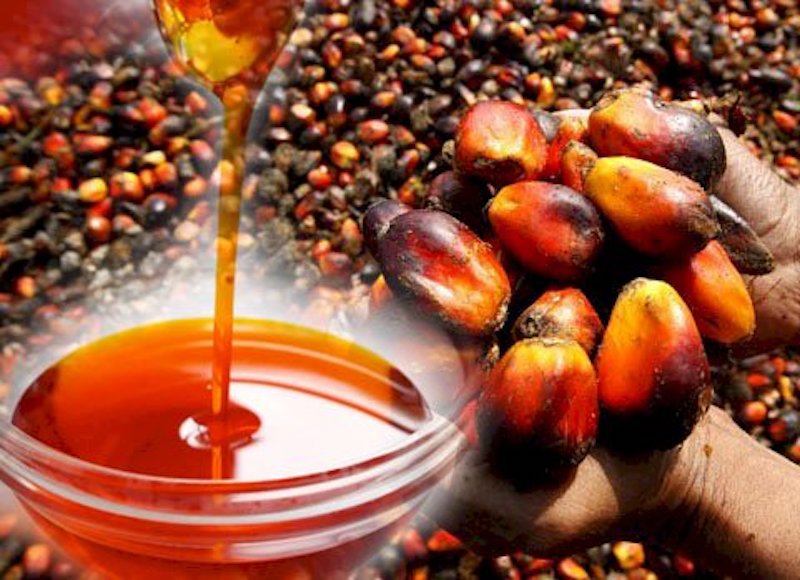Nigeria remains one of Africa’s top palm oil producing nations, with several states contributing significantly to its agricultural output. Palm oil production supports millions of rural families, drives local economies, and serves as a vital raw material for industries.
Below is the list of the top 10 states producing palm oil, reflecting their true contributions and prominence:
1. Edo State
Edo sits at the top of Nigeria’s palm oil production chart.
The state is home to large-scale producers such as Presco Plc and Okomu Oil Palm Company, both of which operate massive plantations and modern processing facilities.
Through the Edo State Oil Palm Programme (ESOPP), the government has expanded palm cultivation and attracted billions of naira in private investment. Edo currently contributes an estimated 12% of Nigeria’s total palm oil output, making it the undisputed leader in the sector.
2. Ondo State
Ondo is a leading producer of palm oil in Nigeria with a long history of commercial cultivation.
The state’s oil palm legacy is anchored by the Okitipupa Oil Palm Company (OOPC), one of Nigeria’s oldest and most productive palm oil company.
OOPC operates large plantations and processing mills that supply high-quality palm oil across the country.
Many farmers also cultivate palm trees throughout the state, contributing substantially to both local consumption and national supply.
3. Cross River State
Cross River ranks high among Nigeria’s palm oil powerhouses.
The state is endowed with large plantations such as Calaro, Oban, and Kwa Falls estates.
The government’s partnerships with private investors have rejuvenated abandoned plantations, creating thousands of jobs.
Palm oil remains a major economic driver in the state, boosting both domestic markets and regional trade.
4. Akwa Ibom State
Akwa Ibom’s rich soil and favourable rainfall make it one of the best environments for palm cultivation.
The state has a mix of traditional farms and emerging commercial estates.
Palm oil production is deeply rooted in the cultural and economic life of the people, with many cooperatives and smallholders involved in cultivation and processing.
5. Delta State
Delta State maintains a strong presence in the palm oil sector, supported by vast farmlands and an active rural farming population.
The state’s palm oil industry thrives through both artisanal and medium-scale operations.
With government support and cooperative schemes, many rural communities depend on palm oil as a key source of income and food security.
6. Imo State
Imo has an extensive network of smallholder palm oil producers spread across the state.
The state’s favourable rainfall pattern encourages large-scale cultivation, while local processing mills sustain steady supply.
Palm oil plays an essential role in rural employment and income generation, and government efforts to rejuvenate old plantations have increased productivity.
7. Abia State
Abia is a traditional palm oil-producing state where cultivation has thrived for generations.
Communities in Ukwa, Isiala Ngwa, and Umunneochi areas are especially active in farming and processing.
The state government’s collaborations with private investors aim to scale up production and introduce modern refining technologies.
8. Bayelsa State
Though widely known for crude oil, Bayelsa also has a growing palm oil industry.
Fertile soils and high rainfall make it conducive for palm cultivation.
Numerous local cooperatives and women’s groups produce and process palm oil for domestic and commercial use.
Government incentives are encouraging farmers to expand their plantations.
9. Rivers State
Rivers State’s palm oil sector thrives in rural communities such as Etche, Ikwerre, and Ogba–Egbema–Ndoni. Smallholder farmers dominate production, supported by medium-sized processors.
The state’s extensive waterways aid in transporting palm oil to major markets in Port Harcourt and neighbouring states.
10. Anambra State
Anambra has a long tradition of palm oil production dating back to the early colonial era.
Communities in Nnewi, Awka North, and Orumba areas are particularly known for their high-quality red oil.
Many small-scale processors continue to sustain the trade, making palm oil an integral part of the state’s economy and heritage.
Nigeria’s palm oil industry remains a pillar of rural development and industrial growth.
States like Edo, Ondo, and Cross River are at the forefront of large-scale production, while others sustain the sector through smallholder contributions.
With renewed investments, technology-driven farming, and better access to processing facilities, Nigeria has the potential to reclaim its position as a global leader in palm oil production.

